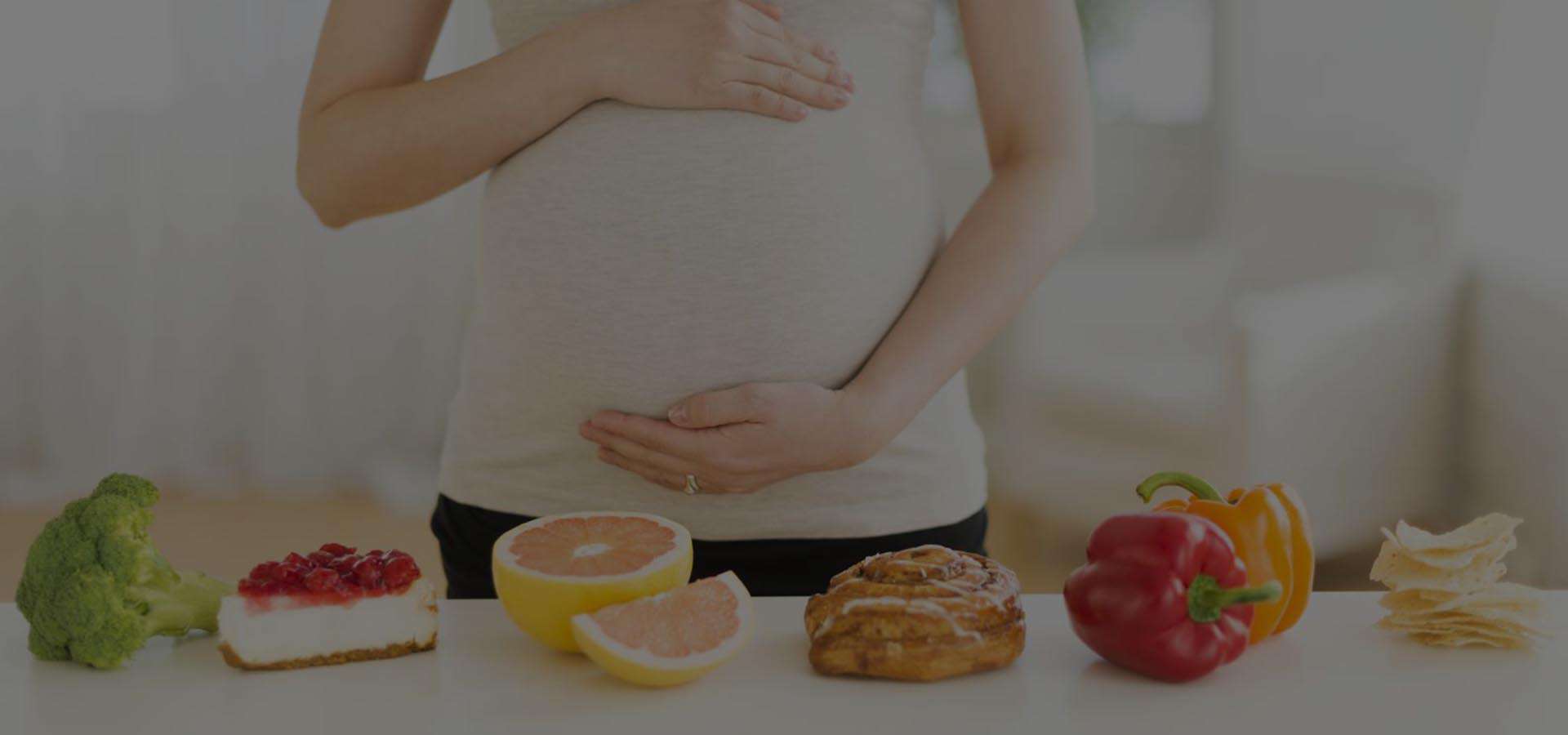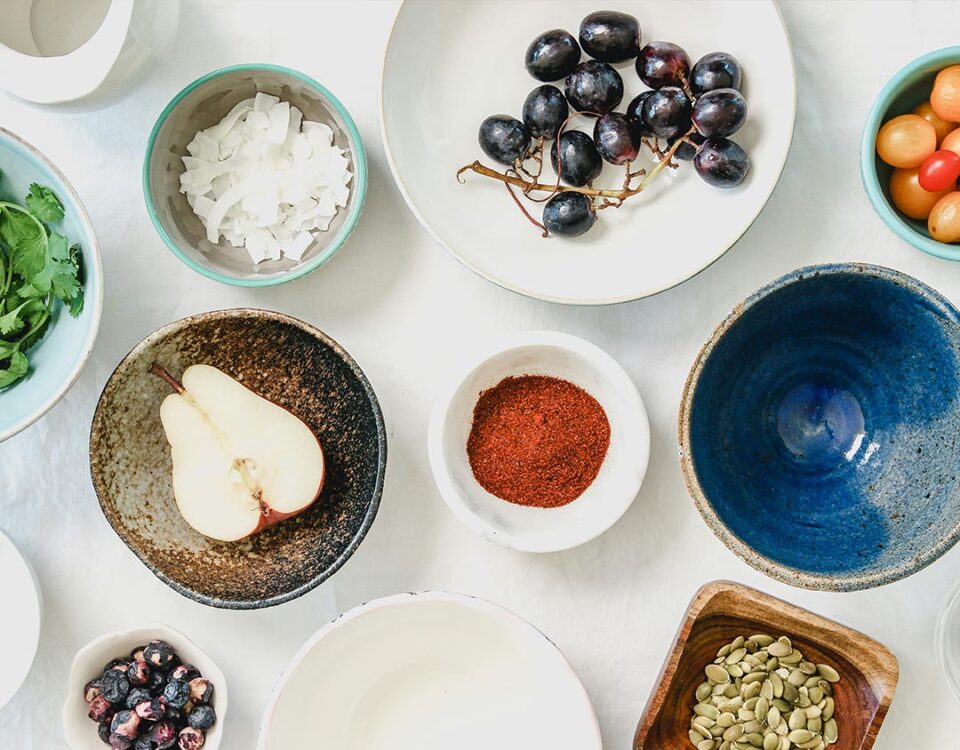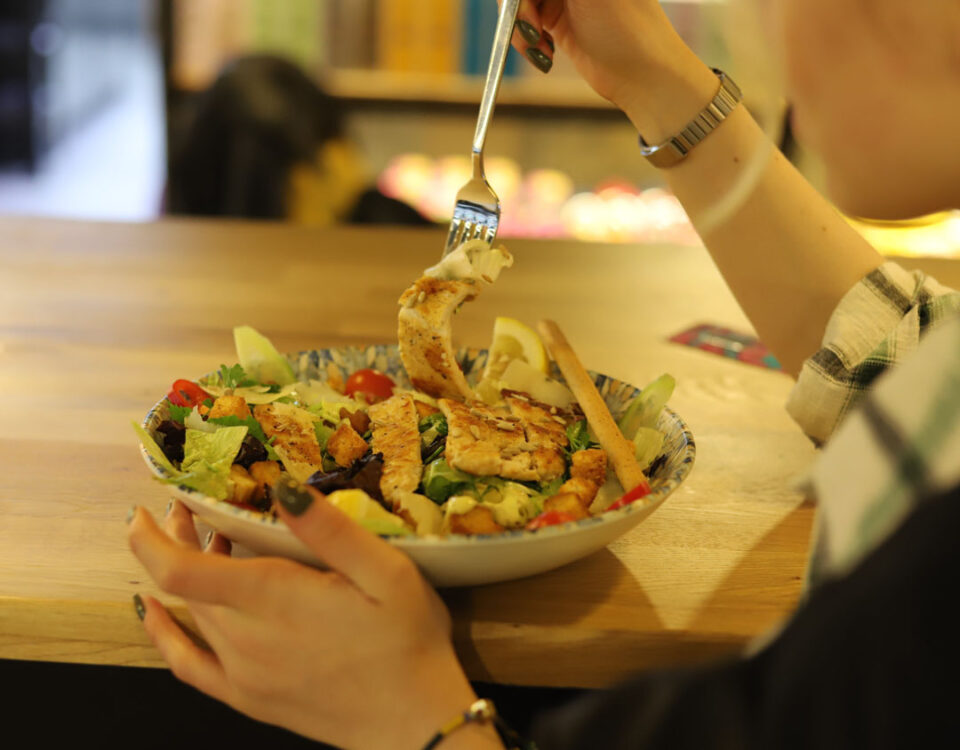
Disordered Eating and Digestive Health
December 15, 2020
Tips to Manage 4 Common Pregnancy Symptoms
May 12, 2021Pregnancy is the beginning of a wonderful new chapter in your life. I know for me I was both ecstatic and nervous at the same time. I began to look into how to best support not only my health, but the health of my little one.
U nfortunately when it comes to nutrition during pregnancy, there is a lot of conflicting information out there and much of it focuses on the negatives, like what you have to avoid or what might happen if you don't get enough of certain nutrients. This can quickly feel overwhelming and restrictive. Let’s start by talking about the key nutrients that you’ll want to include in your day while pregnant and how to get them. Jump to the end of this article for a table summary of all the key nutrients.
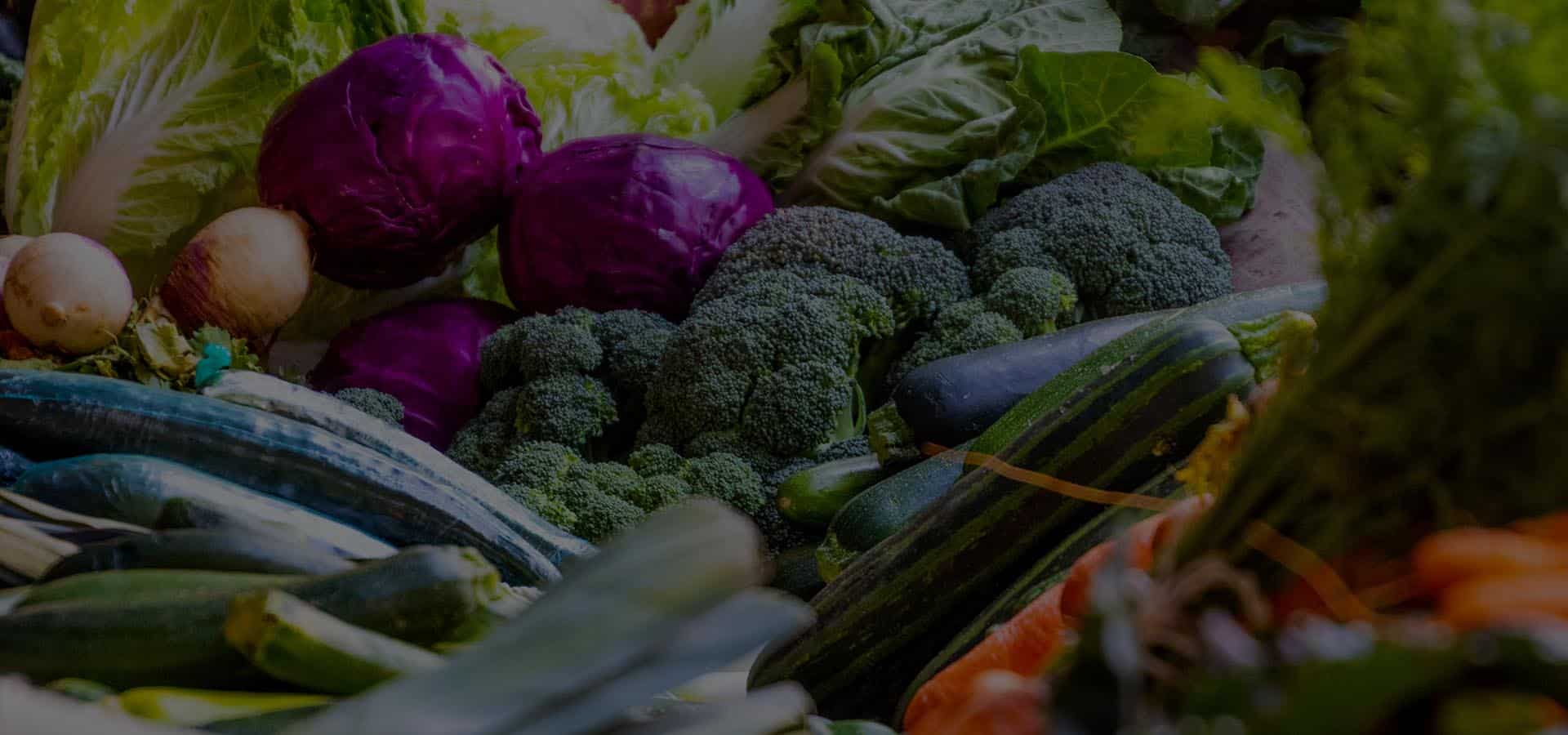
Unfortunately when it comes to nutrition during pregnancy, there is a lot of conflicting information out there and much of it focuses on the negatives.
Folate
Folate is a B-vitamin that is found naturally in food. Folic acid is a synthetic form of folate that is found in supplements and added to fortified foods. Both are very important for the development of your little one’s neural tube, the start of their central nervous system. The neural tube begins to form very early, in the first few weeks of pregnancy, before most women know they’re pregnant. Therefore, to prevent neural tube defects, it is recommended that women who could possibly become pregnant start taking a daily folic acid supplement and continue to take it throughout pregnancy.
How much folate do we need? The Recommended Daily Allowance (RDA) for folate is 400 mcg per day before pregnancy, and 600 mcg per day while pregnant.
Can we get enough folate from food alone? Probably not. We can find dietary folate in foods like beans, lentils, leafy greens, asparagus, beets, Brussels sprouts, broccoli, beef liver, avocado, and citrus fruits, and folic acid in fortified foods like bread and pasta. While there are many foods that contain folate and folic acid, it is very hard to get enough from diet alone and this is why we recommend taking 400mcg of folic acid daily to supplement your diet. The combination of folate from food, folic acid from fortified foods, and folic acid from prenatal vitamins have significantly decreased the prevalence of neural tube defects in the last couple of decades.
Can we get too much folate? We don’t want to take more than 1000 mcg of folic acid per day, unless prescribed by your doctor. This upper limit only applies to folic acid from supplements and fortified foods, and does not apply to the dietary folate found in food. Going above the RDA is not beneficial, unless medically indicated. In fact, there are studies that have suggested that taking high levels of folic acid supplements may be associated with negative neurodevelopmental outcomes in offspring. Therefore, we want to find a prenatal vitamin that provides less than 1000mcg per day.
What is 5-methyltetrahydrafolate and why are people talking about it? When supplemental folic acid and dietary folate are absorbed into the body, they are converted into an active form of folate, called L-methyltetrahydrafolate. In the media, claims have been made that many people are lacking one of the enzymes needed to “activate” the folate/folic acid, this enzyme is called MTHFR, and therefore many people can’t use the folic acid they’re taking. In response to this, many companies have started incorporating a synthetic “activated” form of folate instead, called 5-methyltetrahydrafolate, and promoting it as superior – making these supplements much more expensive. Unfortunately, these claims are not currently supported by scientific evidence. At this time, we do not have any evidence that 5-methyltetrahydrafolate is as effective as folic acid at reducing the risk of neural tube defects, so it is still recommended that women planning to become pregnant or who are pregnant, continue to take 400mcg of folic acid daily. Check out this evidence-based article by Dr. Jen Gunter to learn more.
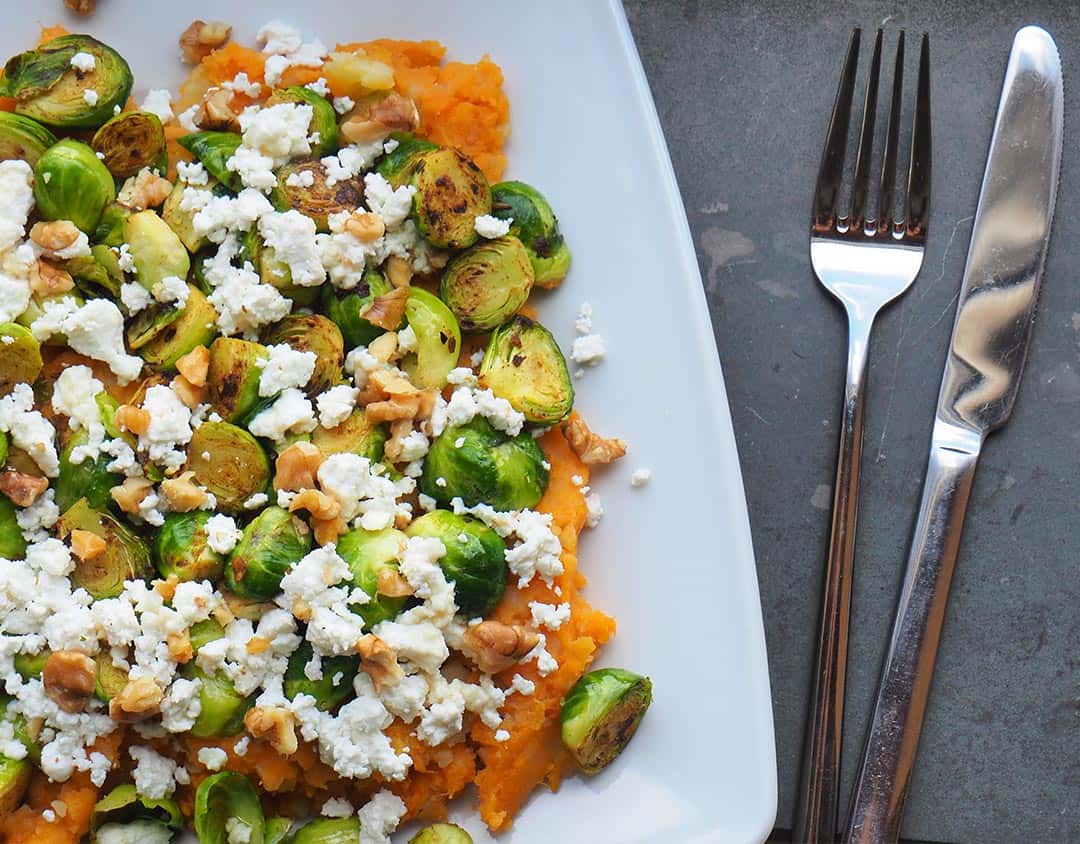
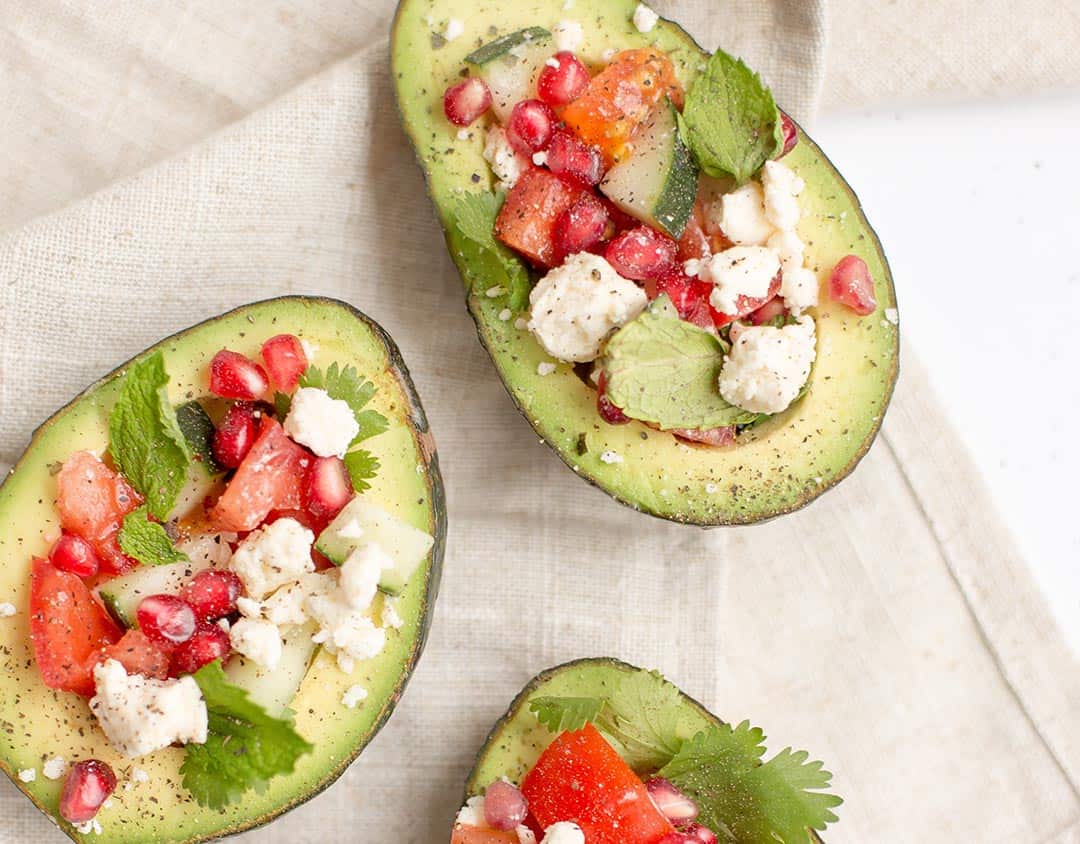
Iron
Iron is important for carrying oxygen in your blood around your body and to your baby. Iron deficiency is the most common nutrient deficiency among pregnant women. Your blood volume increases significantly when you’re pregnant, so we need more iron to account for this change and to provide the baby with enough iron to grow. Getting enough iron, especially later on in pregnancy, also helps to build up baby's iron stores so that they have enough iron for the first six months of their life, before they can start eating solid foods.
How much iron do we need? The Recommended Daily Allowance for iron is 27 mg per day during pregnancy, compared to 18 mg for non-pregnant women.
How do we get enough iron? A good starting point to ensure you are getting lots of iron in your diet is to try to include a protein-rich food at every meal and snack. Many protein-rich foods are also good sources of iron, such as beef, oysters, poultry, eggs, tofu, lentils and beans. Some other foods rich in iron include whole grains fortified with iron, such as breakfast cereals and bread, and dark leafy greens. For many, it can be challenging to reach the RDA for iron while pregnant, therefore a daily prenatal vitamin containing 16-20mg can be beneficial. If you are iron deficient, speak to your health care provider about taking more than this.
Which type of iron is better absorbed? There are two forms of iron - heme and non heme. Heme iron can be found in animal products, while non-heme iron is found in plant-based foods. Heme iron is better absorbed in the body. To improve the iron absorption from plant-based sources, try pairing them with a food rich in vitamin C, such as peppers, berries, citrus fruits, and tomatoes.
Calcium & Vitamin D
Calcium and Vitamin D are both important for development of your baby’s rapidly growing bones and teeth, as well as heart, muscle, and nerve development. Although our needs do not increase when we’re pregnant, many people do not get enough in their usual diet, so it’s important to ensure we are meeting our needs for our health and the health of baby.
How much calcium and vitamin D do we need? The Recommended Daily Allowance (RDA) for calcium is 1000 mg per day for women over 19 years old. The RDA for vitamin D is 15 mg (600 IU) per day, although many experts are now recommending more (1000-2000 IU per day) to maintain sufficient blood levels.
How can we get enough calcium? Try to incorporate 2-3 servings of calcium rich foods per day. Calcium-rich foods include milk, yogurt, cheese, tofu, and sardines with bones. If you are unable to consume enough calcium-rich foods each day, you may need to consider taking a supplement.
How can we get enough vitamin D? Vitamin D is synthesized in the skin when exposed to adequate sunlight. Unfortunately, in Canada we are too far north from the equator to be exposed to enough UV rays to meet our needs. There are also very few vitamin D rich foods, other than salmon and fortified milk, so a daily vitamin D supplement is recommended during pregnancy to meet our needs.

Calcium and Vitamin D are both important for development of your baby’s rapidly growing bones and teeth, as well as heart, muscle, and nerve development.
Vitamin A
Vitamin A is important for the development of your baby’s organs and skeleton, and is crucial for proper eye development.
How much Vitamin A do we need? The Recommended Daily Allowance (RDA) for vitamin A in pregnancy is 770 mcg per day.
How can we get enough Vitamin A? There are two main sources of vitamin A: preformed vitamin A (e.g. retinol) and provitamin A (e.g. carotenoids like beta-carotene). Preformed vitamin A is found in animal-based foods, such as liver, dairy products, and oily fish. Provitamin A is found in plant-based foods, such as orange vegetables (e.g. carrots, sweet potato, pumpkin), kale, spinach, papaya and mango. Vitamin A from animal sources is much better absorbed and is often needed to meet the needs of pregnancy.
Can we get too much Vitamin A? While it is very important to ensure that we are getting enough vitamin A while pregnant, we also don’t want to overdo it as excessive intake can increase the risk of fetal congenital malformations. There is no limit for plant-based sources of vitamin A, but we do need to be cautious when taking vitamin A supplements and when consuming animal-based sources in excess (e.g. liver). It is recommended that pregnant women avoid taking standalone vitamin A supplements or non-prenatal multivitamin supplements as they contain too much preformed vitamin A, and limit their intake of liver to no more than 75g (2.5 oz) per week.
Choline & DHA
Both choline and DHA are nutrients essential for the development of the baby’s brain and nervous system. Choline also helps to prevent neural tube defects, like folate. They are both also needed for proper eye development.
How much choline and DHA do we need? In pregnancy, the Adequate Intake (AI) for choline is 450 mg per day; and the AI for omega-3 fatty acids (EPA and DHA) is 300 mg per day.
How do we get enough choline? Eat a variety of animal-based foods! Egg yolks and liver are great sources of choline, with lesser amounts found in meat, fish, poultry and dairy products. While some vegetables have small amounts of choline, it is very difficult to meet our needs without animal-based foods. If you are vegan or do not consume eggs regularly, you may want to consider taking a daily choline supplement. Most prenatal vitamins do not contain choline so a separate supplement may be needed.
How do we get enough DHA? DHA is found in fatty fish, fish oil and algal oil. Health Canada recommends having at least 150g (5 ounces) of fatty fish per week. Fatty fish include salmon, mackerel, sardines, herring, and anchovies. If you do not consume fish, you may want to consider taking a daily fish oil or algal oil supplement.
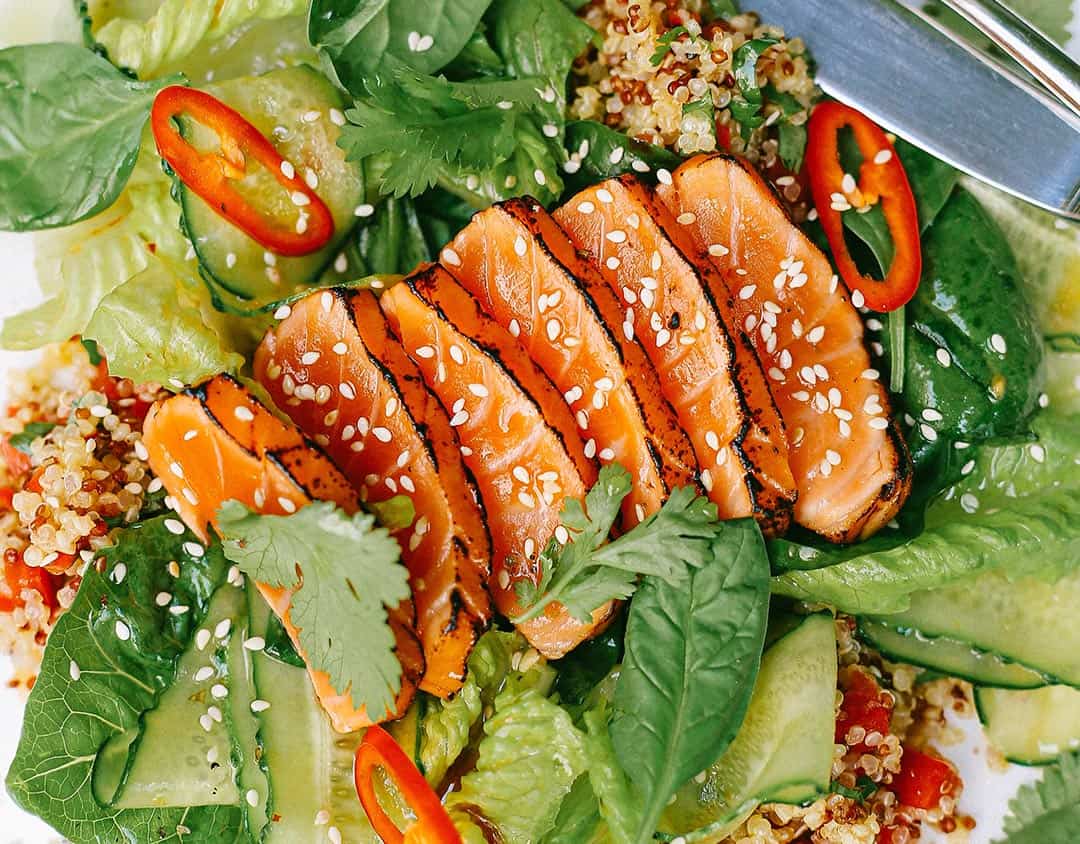

Summary
| Nutrient | Pregnancy Daily Needs | Food Sources:Try to incorporate a variety of these foods into your balanced plate each day | From Supplements:Take this in addition to a balanced, varied diet* |
|---|---|---|---|
| Folate/Folic Acid | 600mcg | legumes (beans/peas/lentils), edamame, dark-green vegetables (spinach, broccoli, brussels sprouts, asparagus, okra, collard greens, mustard greens), sunflower seeds, peanuts, papayas, avocado, enriched pasta, enriched bread | Take a daily prenatal that contains 400mcg of folic acid |
| Iron | 27mg | meat, poultry, fish/seafood, egg, tofu, legumes (beans/peas/lentils), dried fruit, pumpkin seeds, cashew/pine/hazelnuts, enriched cereals/bread, dark leafy greens (spinach, swiss chard) | Take a daily prenatal that contains 16-20mg of iron. If your blood iron levels are low, you may need to take more. |
| Choline | 450mg | liver, eggs, beef, soybeans, chicken, fish | Take a daily prenatal vitamin that contains ~250mg of choline. If your prenatal does not contain choline, take a separate daily choline supplement. |
| DHA | 300mg | Try to have 2 servings of low-mercury, fatty fish (anchovy, char, herring, Atlantic mackerel, salmon, rainbow trout, sardines) per week | Take a daily omega-3 fatty acids supplement that contains 300mg of DHA and 220mg of EPA. |
| Vitamin D | 600 IU some sources recommend up to 2000 IU per day | Food is not a significant source of vitamin D, there is a small amount found in fatty fish (salmon, arctic char), egg, milk, fortified soy/rice milk | Take a daily prenatal supplement and additional Vitamin D3 supplement to reach a total of ~2000 IU per day |
| Calcium | 1000mg | milk, yogurt, cheese, fortified soy products, broccoli, bok choy, swiss chard, sardines, salmon (canned with bones), tofu (made with calcium sulphate), sesame seeds, almonds | Consider an additional supplement if you are not having 2-3 servings of calcium-rich foods per day |
*This is for educational purposes only. Be sure to always consult your medical provider before starting any supplements to ensure that it is appropriate for you.
Written by Liz Powell, RD and Joy Tang.
References:
- Black, J. (2021). Nutrition during pregnancy [powerpoint]. Retrieved from https://canvas.ubc.ca/courses/59872/files/12462673?module_item_id=2866075
- Canada, H. (2006, August 03). Government of Canada. Retrieved February 23, 2021, from https://www.canada.ca/en/health-canada/services/food-nutrition/healthy-eating/dietary-reference-intakes/tables.html
- Canada, P. (2014, January 15). Government of Canada. Retrieved February 23, 2021, from https://www.canada.ca/en/public-health/services/pregnancy/omega-3-fatty-acids-fish-during-pregnancy.html
- Mun, J. G., Legette, L. L., Ikonte, C. J., & Mitmesser, S. H. (2019). Choline and DHA in Maternal and Infant Nutrition: Synergistic Implications in Brain and Eye Health. Nutrients, 11(5), 1125. https://doi.org/10.3390/nu11051125
- Nutrition during pregnancy. (n.d.). Retrieved February 23, 2021, from https://www.healthlinkbc.ca/health-topics/hw194870

